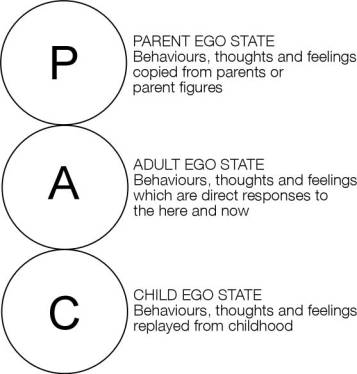Blame the Daleks: I've never got over the childhood scarring from knowing our sofa was just no match for their death rays! I consider myself fairly well-read, certainly with a vocabulary bigger than England's soccer manager Fabio Capello claims. But thanks to the Daleks I've never read much science fiction so, until today, I'd never heard the word 'grok.'
Check out his www.IdentityBlog.com
It seems that 'grok' means "to understand so thoroughly that the observer becomes a part of the observed—to merge, blend, intermarry, lose identity in group experience. It means almost everything that we mean by religion, philosophy, and science—and it means as little to us (because of our Earthling assumptions) as color means to a blind man."
@Kim_Cameron is reacting to Tech Crunch's news about the new Gmail advertising: the company's deploying their ability to mine the contents of the individual emails in your Inbox and serve up ads that are targeted to be relevant to your current interests, based on your profile of whether you've actually read emails with that sort of content before, how close the sender is to you in social network friendship terms, and more...
@Kim_Cameron's reacting that people haven't happily accepted the data mining by Google (and Facebook and most of the 'free' ad-supported Web 2.0 services). They don't 'grok,' merge their identity in group experience.
It's unfair to pick at views restricted to less than 140 characters in a Tweet, but surely it's only some people who don't 'grok!' Facebook absolute user numbers continue to increase; individual engagement with the site each month is hardly falling noticeably; and millions of people continue to enjoy the convenience of Gmail and similar 'free' hosted email services.
However, as we've noted before, expect the 'non-grokiness' (did I just coin a word?) to cause some people to look for more private ways of engaging in the cyber world. @Kim_Cameron's space-constrained dire "just wait" warning probably won't come to pass soon enough to be measurably linked to Gmail's latest innovation, but there's some grain of truth to his prophecy!
Get more like this
People didn't "get over it". [http://tcrn.ch/fER72l] DOES NOT COMPUTE yet - "creepy" GMAIL HAL too far out to GROK. Just wait.
It seems that 'grok' means "to understand so thoroughly that the observer becomes a part of the observed—to merge, blend, intermarry, lose identity in group experience. It means almost everything that we mean by religion, philosophy, and science—and it means as little to us (because of our Earthling assumptions) as color means to a blind man."
@Kim_Cameron is reacting to Tech Crunch's news about the new Gmail advertising: the company's deploying their ability to mine the contents of the individual emails in your Inbox and serve up ads that are targeted to be relevant to your current interests, based on your profile of whether you've actually read emails with that sort of content before, how close the sender is to you in social network friendship terms, and more...
@Kim_Cameron's reacting that people haven't happily accepted the data mining by Google (and Facebook and most of the 'free' ad-supported Web 2.0 services). They don't 'grok,' merge their identity in group experience.
It's unfair to pick at views restricted to less than 140 characters in a Tweet, but surely it's only some people who don't 'grok!' Facebook absolute user numbers continue to increase; individual engagement with the site each month is hardly falling noticeably; and millions of people continue to enjoy the convenience of Gmail and similar 'free' hosted email services.
However, as we've noted before, expect the 'non-grokiness' (did I just coin a word?) to cause some people to look for more private ways of engaging in the cyber world. @Kim_Cameron's space-constrained dire "just wait" warning probably won't come to pass soon enough to be measurably linked to Gmail's latest innovation, but there's some grain of truth to his prophecy!
Get more like this








